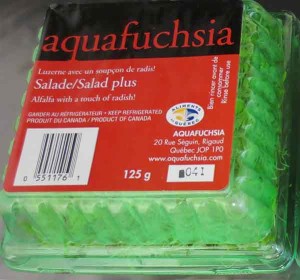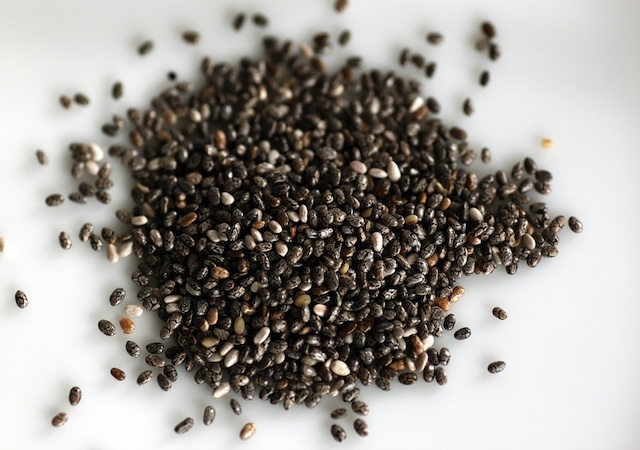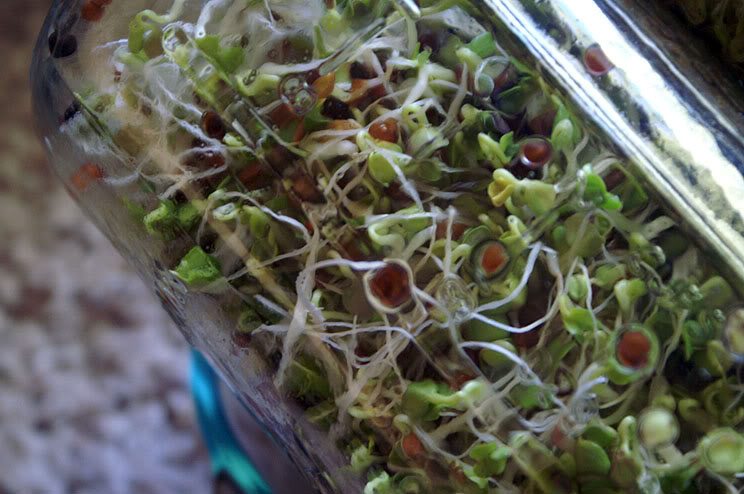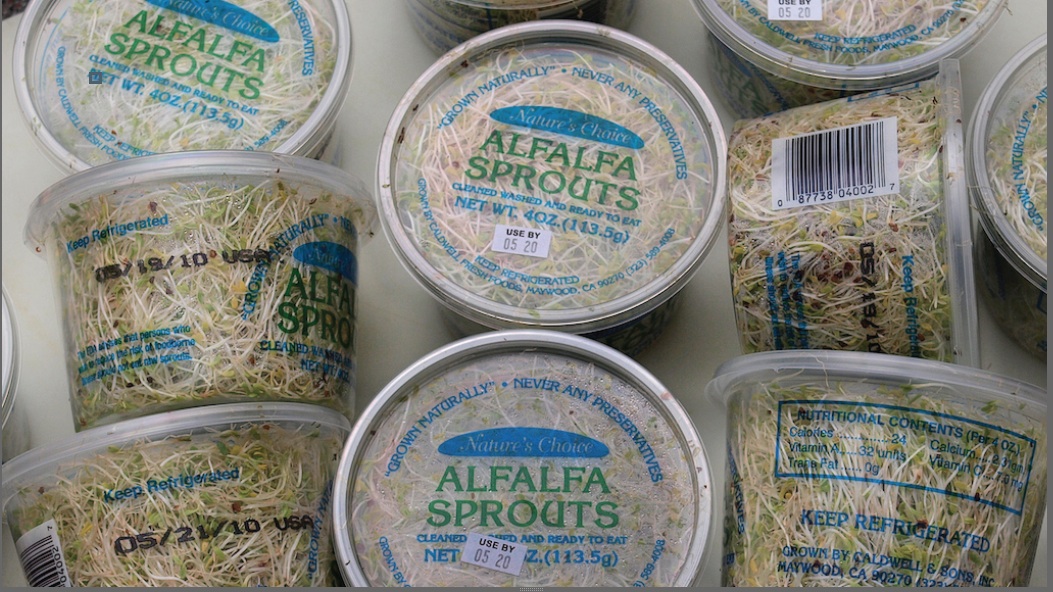We developed a risk assessment of human salmonellosis associated with consumption of alfalfa sprouts in the United States to evaluate the public health impact of applying treatments to seeds (0–5-log10 reduction in Salmonella) and testing spent irrigation water (SIW) during production.
 The risk model considered variability and uncertainty in Salmonella contamination in seeds, Salmonella growth and spread during sprout production, sprout consumption, and Salmonella dose response.
The risk model considered variability and uncertainty in Salmonella contamination in seeds, Salmonella growth and spread during sprout production, sprout consumption, and Salmonella dose response.
Based on an estimated prevalence of 2.35% for 6.8 kg seed batches and without interventions, the model predicted 76,600 (95% confidence interval (CI) 15,400–248,000) cases/year. Risk reduction (by 5- to 7-fold) predicted from a 1-log10 seed treatment alone was comparable to SIW testing alone, and each additional 1-log10 seed treatment was predicted to provide a greater risk reduction than SIW testing. A 3-log10 or a 5-log10 seed treatment reduced the predicted cases/year to 139 (95% CI 33–448) or 1.4 (95% CI <1–4.5), respectively. Combined with SIW testing, a 3-log10 or 5-log10 seed treatment reduced the cases/year to 45 (95% CI 10–146) or <1 (95% CI <1–1.5), respectively. If the SIW coverage was less complete (i.e., less representative), a smaller risk reduction was predicted, e.g., a combined 3-log10 seed treatment and SIW testing with 20% coverage resulted in an estimated 92 (95% CI 22–298) cases/year.
Analysis of alternative scenarios using different assumptions for key model inputs showed that the predicted relative risk reductions are robust. This risk assessment provides a comprehensive approach for evaluating the public health impact of various interventions in a sprout production system.
Risk assessment of salmonellosis from consumption of alfalfa sprouts and evaluation of the public health impact of sprout seed treatment and spent irrigation water testing
January 2018, Risk Analysis
Yuhuan Chen, Regis Pouillot, Sofia Farakos, Steven Duret, Judith Spungen, Tong-Jen Fu, Fazila Shakir, Patricia Homola, Sherri Dennis, Jane Van Doren
DOI: 10.1111/risa.12964


 Friday I had to grab a quick lunch, so I joined a colleague at the “
Friday I had to grab a quick lunch, so I joined a colleague at the “ Friday I had to grab a quick lunch, so I joined a colleague at the “
Friday I had to grab a quick lunch, so I joined a colleague at the “